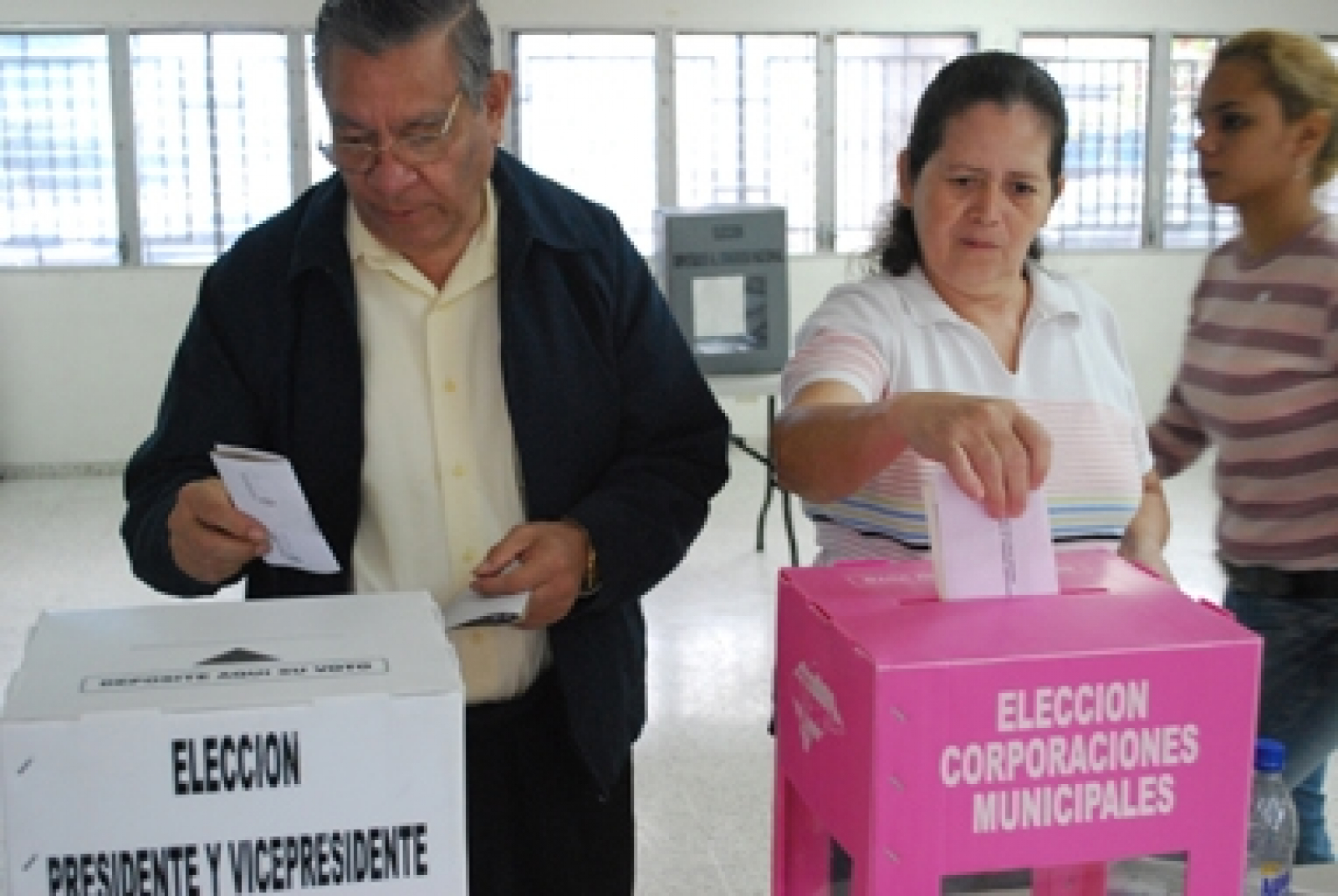
SHARE
Those elected in Honduras’ orderly and peaceful Nov. 29 general elections now have the opportunity and responsibility to lead a reconciliation process to overcome the country’s political crisis, a National Democratic Institute (NDI) international election assessment mission said today in a statement. (Full statement in English and Spanish.)
In a report released here, the delegation noted that since June 28, when President Manuel Zelaya was removed from office, Hondurans have experienced two distinct campaigns. One has been between those supporting or opposing the president's removal; the other has been between the parties and candidates contesting the Nov. 29 elections. The former conflict has had a significant impact on Honduran society and on the country’s international standing, but its precise impact on the electoral campaign has been difficult to measure. In July, Honduras was suspended from active membership in the Organization of American States (OAS) for violating the OAS Democratic Charter through a coup d'état.
The report reflected the findings of 22 international experts mobilized by NDI who were deployed around the country to provide an impartial assessment of the conduct of the electoral process. Members of the delegation came from North America, Latin America and Europe, and included election experts, civic leaders and others with knowledge of, and expertise in, regional affairs.
Their findings were based on what members observed directly on election day as well as information received from a broad series of contacts across Honduran society and the political spectrum. The delegation also conferred with NDI’s civic partner in Honduras, Hagamos Democracia, a coalition of domestic civic groups that monitored more than 1,000 polling stations.
Hagamos Democracia

Hagamos Democracia, an NDI-partner organization based in Honduras, released a series of reports during the presidential, congressional and municipal elections on Nov. 29 in Honduras. The nonpartisan organization dispatched more than 1,000 election observers to all 18 departments and 283 of the 298 municipal districts.
Read more about Hagamos Democracia
The delegation said that despite some isolated incidents, election day was orderly and peaceful. Members noted that Honduran election authorities took some meaningful steps to increase the transparency of the election process, such as opening the counting process at local polling stations to public scrutiny, which it described as “a marked improvement over past practices.”
The delegation also identified structural problems requiring reforms and offered a number of recommendations for improving the electoral process. It noted, for example, that the voter registry has not been updated for many years and includes many Hondurans who are no longer in the country or who are deceased.
In addition, the report cited the “state of siege” (estado de sitio) that was decreed on Sept. 27 and extended three weeks into the official campaign period. The decree suspended constitutional guarantees, which included freedom of speech and assembly, and protection against arrest without warrant. Under this suspension of civil rights, security forces closed two opposition media outlets and reportedly damaged broadcast equipment. A number of international and national human rights groups raised concerns about these and other developments, including arbitrary detentions and excessive use of public force against demonstrations.
The delegation did not draw broad conclusions about the overall process because of the limited, specialized nature of the assessment mission, which was convened on short notice after the signing of the Tegucigalpa-San Jose Accord that set out a process for resolving the country’s political stalemate. The timeframe did not allow for the dispatch of long-term observers and a pre-election mission, for example, which would be required to meet international election observation standards.
“The delegation heard repeatedly,” its statement said, “that the crisis in Honduras began before June 28 and will continue after these elections unless a genuine reconciliation process begins. Despite the controversy of holding these elections under current circumstances, the newly elected leaders of Honduras have the opportunity and responsibility to do everything possible to overcome the divisions in the country. This is the best way to respond to the hopes and aspirations of the Honduran people.”
The Institute has been working since 2008 to safeguard the integrity of the Honduran election process by helping Hagamos Democracia observe the 2008 primary elections and prepare for the 2009 general elections through technical assistance on international best practices for election observation.
The assessment mission was funded by a grant from the United States Agency for International Development.
Pictured above: Voters cast their ballots in Tegucigalpa on Nov. 29. Below: See a photo slideshow from election day activities in Honduras. Click on each photo to read more.
Published on December 2, 2009


